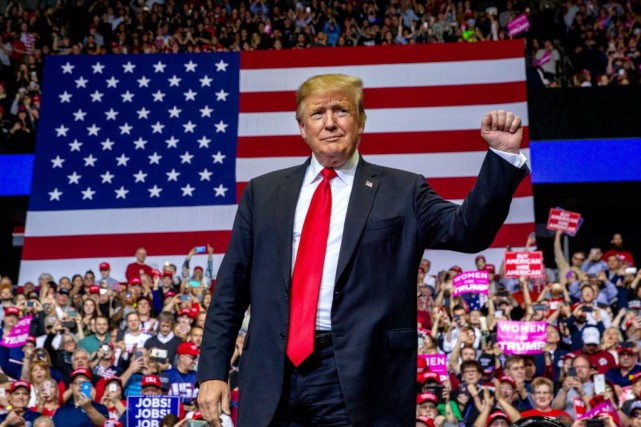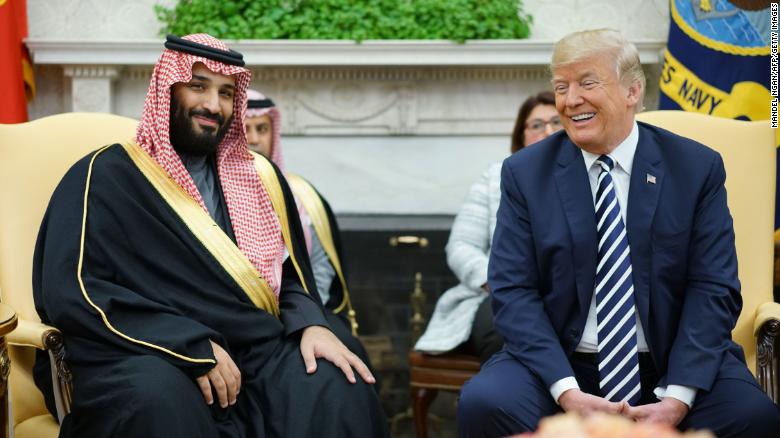
Storm Clouds over Cuba
Storm clouds are gathering over Cuba after its northern neighbor sent them southward, and Havana is taking the threat of U.S. military aggression very seriously. The Americans have actively emerged as Venezuela’s main ally in the unsuccessful attempt to overthrow the legitimate president Nicolás Maduro. The military threat is also being accompanied by concrete measures to stifle the Cuban economy.
On May 1, the Americans are planning to implement the currently suspended 1996 Helms-Burton Act, which provides for strict financial and economic sanctions against third states in the event of trade and economic cooperation with Cuba. The act also legalizes compensation demands from American owners of various properties that were nationalized on the island of freedom following the 1959 revolution. Ultimately, the Helms-Burton Act is aimed at putting pressure on the stream of foreign investment on which Cuba relies significantly. Nicaragua also falls within the line of fire.
The U.S. Treasury Department has already announced that the restrictions will affect the Central Bank of Venezuela and the Nicaraguan Banco Corporativo. Five organizations that have ties to Cuban intelligence agencies have also been blacklisted. The aviation company Aerogaviota, which is owned by the Cuban military, has been subjected to restrictions.
For the record, activating the Helms-Burton act will not just hurt the island. Consequently, the European Commission has threatened to lodge a potential complaint against the U.S. with the World Trade Organization if the U.S. ratifies its intention to renew sanctions against European companies invested in the Cuban economy. In a letter addressed to the U.S. secretary of state, Brussels warned Washington that the EU will take all possible actions in response, including the confiscation of American companies in Europe, in order to compensate for the damage inflicted upon its companies in Cuba.
The unilateral measures taken by the U.S. primarily threaten the interests of Spanish companies, specifically those in the hospitality industry, which may have to tackle compensation demands from American citizens who invested in Spanish property confiscated after the Cuban revolution.
Meanwhile, the island of freedom is preparing for a “war of all the people” and is taking urgent measures to ensure survival under an anticipated total blockade by Washington. This follows a lengthy statement First Secretary of the Central Committee of the Communist Party of Cuba Raúl Castro delivered a few days ago at the republic’s Extraordinary Parliamentary Session.
Such alarming rhetoric from the Cuban leadership has not been heard, perhaps, since the American mercenaries invaded Playa Girón in April 1961. Nor do we recall ever hearing such a harsh assessment of the threat to Cuba. Raúl Castro emphasized that “the current government of the United States of America and its hegemonic ambitions in relation to the region present the most serious threat to peace, security and the prosperity of Latin America and the Caribbean Basin that we have witnessed in the last five decades.”
Cuba’s leadership sees its international position primarily through the prism of America’s open desire to overthrow the legitimate president of Venezuela, Nicolás Maduro. However, Havana’s support for Caracas stems from the fact that Venezuela, like Cuba, is openly against the hegemonic politics of the U.S. The Bolivarian Republic is also the main trading partner of the island of freedom, supplying it with up to 50% of all the oil consumed by the country, according to some reports. And if, as a result of U.S. actions, Venezuela stops supplying Cuba with oil, then, according to the estimates of the Spanish newspaper El País, the island’s gross domestic product will drop by 10%.
As Raúl Castro reported, the country has informed the American government that Cuba is not afraid of the threat and that its desire for peace and mutual understanding is accompanied by an unwavering determination to protect the sovereign right of its citizens to decide their future without foreign interference.
According to the words of the first secretary of the Central Committee of the Communist Party, “over the last few months, a whole range of measures has been taken in the interests of strengthening military potential and the readiness of the Revolutionary Armed Forces, as well as all of the country’s defense systems, as part of the strategic concept of the ‘war of all the people.’”
For understandable reasons, the Cuban leader did not make it explicit exactly which defense measures have been taken. What is known, however, is that this concept, which was devised back in the years under Fidel Castro’s rule, implies the participation of the entire population and absolutely all powers, means and resources in deflecting foreign aggression. Moreover, it is known that the Cuban army, having gained invaluable experience in military operations in Angola and other African countries in the 1970s and 1980s, is the most combat-ready force in Latin America.
Economic measures are also being taken. The Cuban leader noted that he is not talking about a return to the so-called special period of the 1990s, when the country’s economy experienced one of the most severe crises as a result of the collapse of the socialist bloc. However, he warned Cubans that the economic situation “could worsen in the coming months.” But for now, the order has been given to double the efforts to expand domestic production, specifically the production of food, to review all expense items, to increase the effectiveness of energy use, especially that of fuel, and to implement a regime of austerity in the form of a strict course of action.
The final words of Raúl Castro’s report best describe the prospect of exiting this incredibly difficult situation, which has become harder still for Cuba. In the last 60 years of fighting attacks and threats, Cubans have demonstrated a steadfast readiness to stand up to the most difficult obstacles and overcome them. “Cuba has already proved that it could, can, and will always be able to resist, fight, and win. There is no other way out.”
*Editor’s note: “Island of freedom” is a phrase that was used to describe Cuba during the Soviet era.


